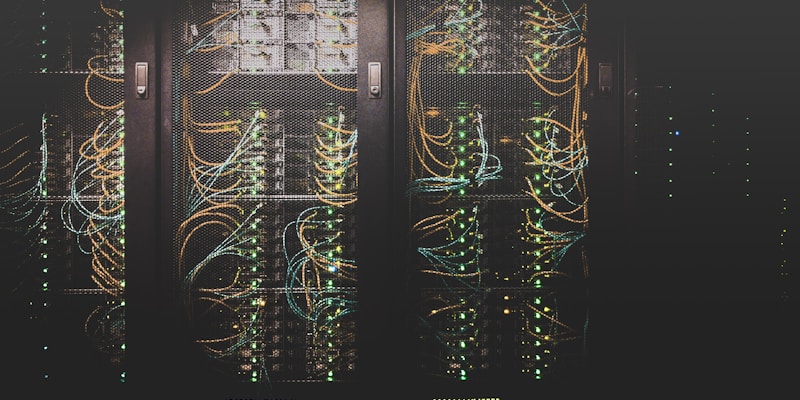
7 Essential Benefits of Using a VPN for Online Privacy and Security
In an era where our digital footprint expands every day, protecting our online privacy and security has become more crucial than ever. Virtual Private Networks (VPNs) have emerged as powerful tools that offer comprehensive protection for internet users. Let's explore the seven essential benefits of using a VPN for enhanced online privacy and security.
1. Complete Online Privacy Protection
One of the most significant benefits of using a VPN is the complete privacy protection it offers. When you connect to a VPN, your internet traffic is encrypted and routed through a secure server, making it virtually impossible for anyone to monitor your online activities.
What this means:
- Your Internet Service Provider (ISP) cannot see what you do online
- Government agencies cannot track your browsing habits
- Advertisers cannot collect your personal data for targeted ads
- Websites cannot log your real IP address or location
2. Enhanced Security on Public Wi-Fi Networks
Public Wi-Fi networks, while convenient, are notoriously insecure. Coffee shops, airports, hotels, and other public places often have unsecured networks that hackers can easily exploit. VPNs create an encrypted tunnel for your data, protecting you even on unsecured public networks.
Common threats on public Wi-Fi:
- Man-in-the-Middle attacks: Hackers intercepting your data
- Evil Twin attacks: Fake Wi-Fi hotspots designed to steal information
- Packet sniffing: Capturing unencrypted data transmitted over the network
3. Protection Against Bandwidth Throttling
Many ISPs engage in bandwidth throttling - deliberately slowing down your internet connection based on your online activities. This often happens when streaming videos, torrenting files, or during peak usage hours. VPNs prevent throttling by encrypting your traffic, making it impossible for ISPs to determine what you're doing online.
Activities commonly throttled:
- Video streaming (Netflix, YouTube, etc.)
- File sharing and torrenting
- Online gaming
- Large file downloads
4. Safe Access to Geo-Restricted Content
Content restrictions based on geographic location are common in today's internet landscape. Streaming services, news websites, and social media platforms often limit access based on your location. VPNs allow you to connect to servers in different countries, effectively bypassing these geo-restrictions.
What you can access with a VPN:
- Streaming content from other countries' Netflix libraries
- News and media restricted in your region
- Social media platforms blocked in certain countries
- Sports broadcasts blacked out in your area
5. Protection Against Surveillance and Censorship
In many parts of the world, internet censorship and government surveillance are harsh realities. VPNs provide a lifeline for journalists, activists, and ordinary citizens to access uncensored information and communicate freely without fear of surveillance.
How VPNs help:
- Bypass government firewalls and censorship systems
- Access blocked news and information sources
- Communicate securely without government monitoring
- Protect journalistic sources and whistleblowers
6. Secure Remote Work and Business Operations
With the rise of remote work, VPNs have become essential tools for businesses and remote workers. They provide secure access to company resources and protect sensitive business data from unauthorized access.
Benefits for businesses:
- Secure access to internal company networks
- Protection of sensitive business communications
- Safe file sharing between remote team members
- Compliance with data protection regulations
7. Prevention of Price Discrimination
Many online retailers and service providers practice price discrimination, showing different prices based on your location, browsing history, and other factors. VPNs help prevent this by masking your real location and browsing patterns.
Common examples of price discrimination:
- Flight prices varying based on your location
- Hotel rates changing based on your browsing history
- Subscription services offering different prices by country
- Online retailers showing different prices based on your IP address
How to Choose the Right VPN for Privacy and Security
Not all VPNs are created equal when it comes to privacy and security. Here are key factors to consider:
1. No-Logs Policy
Look for VPN providers with a strict no-logs policy, meaning they don't record your online activities. Independent audits verifying this policy are a plus.
2. Strong Encryption
Choose VPNs that use industry-standard encryption protocols like AES-256, along with modern VPN protocols such as WireGuard, OpenVPN, or IKEv2.
3. Kill Switch Feature
A kill switch automatically disconnects your internet connection if the VPN connection drops, preventing your data from being exposed.
4. DNS Leak Protection
Ensure the VPN includes DNS leak protection to prevent your real IP address from being exposed through DNS requests.
5. Server Locations
More server locations provide better options for bypassing geo-restrictions and finding fast connections.
Common VPN Myths Debunked
Myth: VPNs are only for people doing illegal activities
Reality: VPNs are legitimate privacy tools used by millions of people for security, privacy, and accessing content legally.
Myth: Free VPNs provide adequate protection
Reality: Many free VPNs have been found to log user data, inject ads, or even contain malware. Paid VPNs generally offer better security and privacy.
Myth: VPNs significantly slow down internet speed
Reality: While there's some overhead due to encryption, quality VPNs have minimal impact on speed, and some can even improve speeds by bypassing ISP throttling.
Conclusion: Invest in Your Digital Privacy
In today's digital age, online privacy and security are not luxuries—they're necessities. VPNs provide comprehensive protection against surveillance, data theft, and various online threats. By encrypting your internet connection and masking your IP address, VPNs give you control over your digital footprint and ensure your online activities remain private.
Whether you're concerned about government surveillance, hacker attacks, ISP tracking, or simply want to access geo-restricted content, a quality VPN is an essential tool in your digital security arsenal. Remember to choose a reputable provider that prioritizes your privacy and offers the features you need for comprehensive online protection.
Take control of your online privacy today—your digital security is worth the investment.







